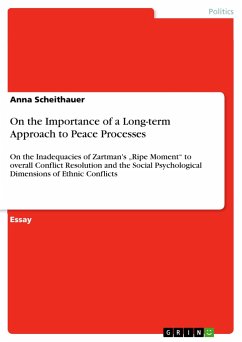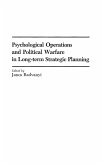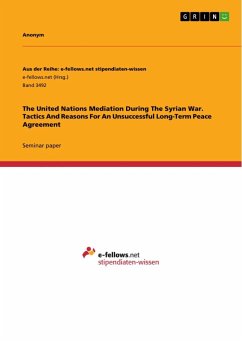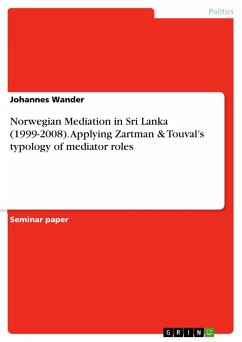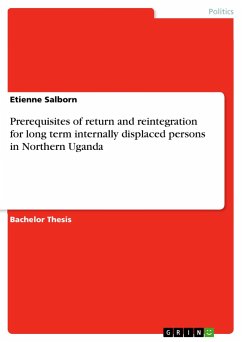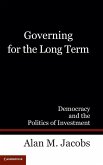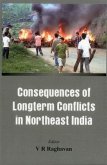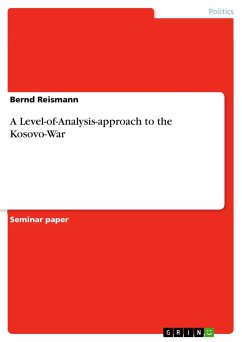Essay from the year 2011 in the subject Politics - International Politics - General and Theories, grade: 1, University of Vienna (Politikwissenschaft), language: English, abstract: This paper is set out to give a possible account of why so many peace processes concerning intra-state ethnic conflicts have produced "no war, no peace" situations, hence states of negative peace where risks for resumed fightings are high, rather than an actual resolution fostering mutual understanding and recognition involving society at large. The first section of this assignment is designed to point out the necessity to resolve conflicts by peaceful means as well as of conflict transformation and, thereby, deals with the wide-spread assumption first introduced by Zartman that conflicts require a "ripe moment" as the ideal entry point for eg. mediators to reach a peace agreement among the belligerents which I have argued only leads to a peace settlement and thus, more often to a flawed peace than to the conflict's resolution. John Paul Lederach's approach of cultivating peace and Ramsbotham's ideas of conflict transformation both stressing the cruciality of a long-term approach to peace processes have underlined my argumentation. The second part then explores the fundamentals of the social psychological aspects of ethnic conflicts reflected upon so well by Herbert Kelman who builds upon Burton's research concerning the dimension of deep rooted conflicts - as ethical conflicts usually can be described! - emphasising human needs and fears over interests, since they can be seen as the root cause for the inadequacy of Zartman's theory of the "ripe moment". Moreover, the concept of work-shops designed by Kelman as a feature of track II diplomacy in conflict resolution shall serve as a successful example for an alternative in a long-term approach to peace processes. Altogether, it is to notice that the paper is based on the constructivist assumption of the ethnic concept in contrast to the primordialist thought. Furthermore, Zartman's "ripe moment", should not in anyway be discredited in its contribution to conflict resolution as it can serve as a valuable turning point. However, it should not be seen as the solution but rather as an initial/accompanying step in a long-term process that is essential for a sustainable peace. Finally, when taking these considerations in mind the core element needed in addition for a successful peace process is political and societal will in order to really overcome "no war, no peace" situations on the long-term!
Bitte wählen Sie Ihr Anliegen aus.
Rechnungen
Retourenschein anfordern
Bestellstatus
Storno

